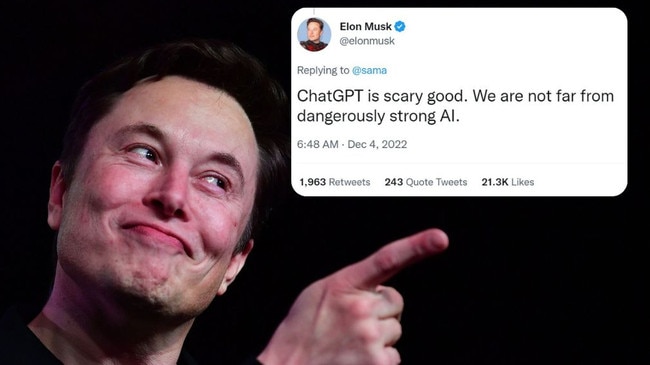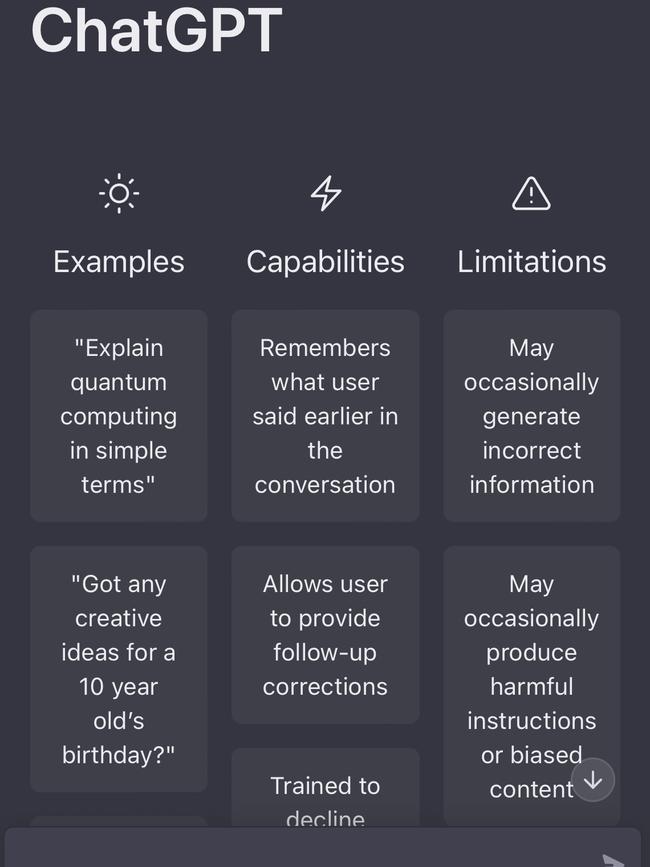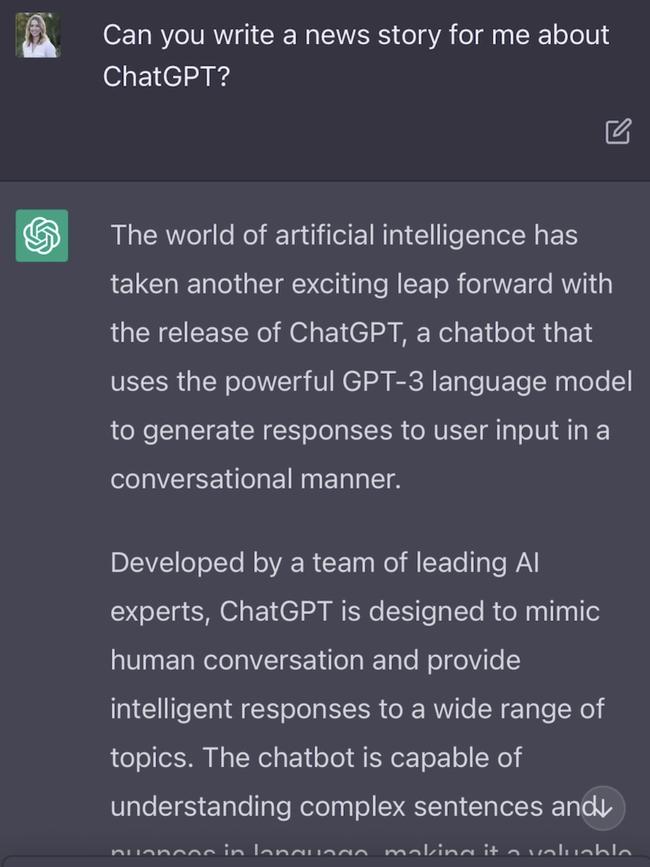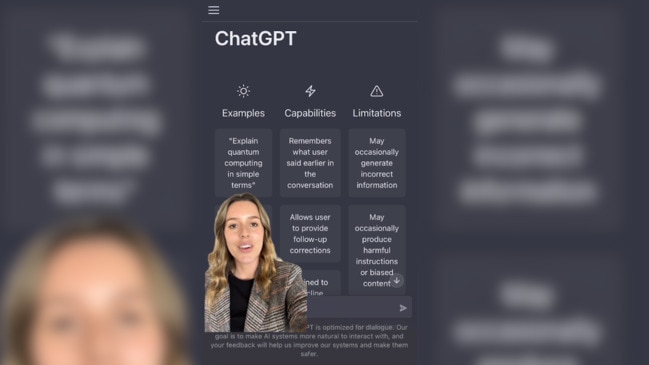Could a ’scary good’ AI chatbot backed by Elon Musk steal your job?
A new AI chatbot backed by Elon Musk could help people do their job, among many other things. But not all are happy with the “scary” technology.

Innovation
Don't miss out on the headlines from Innovation. Followed categories will be added to My News.
University as we know it will cease to exist. It genuinely feels like having a personal assistant. One of the most disruptive technologies ever created. Google is dead.
These are some of the reactions to a new AI chatbot that just about everyone on the internet seems to be talking about this week.
ChatGPT was created by OpenAI, which was founded in 2015 by Elon Musk, Sam Altman (the current CEO) and other investors.
Musk, the world’s richest person, resigned from the board in 2018 due to a potential conflict of interest with Tesla AI but remained a donor.
ChatGPT launched on December 1 and within five days had one million users.
In comparison, Instagram took 2.5 months to hit this milestone and earlier social media platforms like Facebook and Twitter took much longer.
Musk has described ChatGPT as “scary good”.
“We are not far from dangerously strong AI,” he tweeted on Sunday.
For the user, it is simple: you sign up to OpenAI, get access to the bot and can ask it whatever you want.


It is currently a free research release, which means it is an early demo and there are limitations and mistakes.
But people across the world have been shocked so far at what it can do – and are both excited and nervous about its potential.
Some users have used it to create personalised meal plans and workouts, write essays, answer exam questions, draft emails, write and debug code, brainstorm ideas for start-ups or the marketing of a product, and even relationship advice.

Can ChatGPT do my job?
There has been a lot of discussion about whether the ChatGPT will soon steal people’s jobs.
OpenAI chief executive Sam Altman tweeted on Thursday morning that adaptability and resilience were good skills to have in the future.
“Hard to answer the question of ‘what jobs will be safe’, but humans always find new things to do, and the future will likely be amazing. Embracing change will be important,” he wrote.
I gave ChatGPT a go to see if it could do my job for me.
I asked it to write a news story about itself and then sent the two options it provided to news.com.au editor Oliver Murray. He was impressed.
“It’s kind of scary how well it can write a news story, but it’s still missing something important,” he said. “A good story should be able to explain a complex topic in an easy to understand way for readers.
“But you can probably see a time when bots are writing stories on basic topics that can then be edited and updated by a real reporter. But for now, I think reporters’ jobs are safe!”

How ChatGPT is already helping people with their jobs
Many have been using the new chatbot for fun, asking it questions like I did: “What is the most popular food in Australia?” and “What is the most difficult maths question and how do you solve it?”.
As for the food, the first answer was that it was “difficult to say” because of how multicultural our country is and the second was “meat pie”. It said the most difficult maths question was the “Collatz conjecture”.
Aside from the trivial questions, users have found it astonishingly useful for things that have actually made their lives and jobs easier.
Tom Randall, a reporter at Bloomberg, said he used ChatGPT to save him an hour of spreadsheet work by getting the bot to write a complex sorting script and explain how to use it.
“The party tricks have been fun, but this was a whoa moment for me similar to the first time I used Google Search,” he wrote on Twitter.
ChatGPT is scary good. We are not far from dangerously strong AI.
— Elon Musk (@elonmusk) December 3, 2022
Peter Wang, a former physicist and software developer from Texas, said he was blown away after a 20 minute conversation with ChatGPT about the history of modern physics.
“If I had this s*** as a tutor during high school and college … OMG,” he wrote. “I think we can basically re-invent the concept of education at scale. College as we know it will cease to exist.”
Ethan Mollick, a professor at The Wharton School of the University of Pennsylvania, a private Ivy League research university, said he introduced ChatGPT to his undergraduate entrepreneurship class.
By the end of the class he said a student had used it to code and build a working demo of his product.
While there has been high praise, there has also been criticism and concern that people will believe whatever the bot says when it can easily be wrong.
Industry expert Andrew Ng summed up a lot of users’ experiences when he said the new chatbot was “sometimes amazing, and sometimes hilariously wrong”.
Before users get chatting with the bot, they are warned it can “occasionally” generate incorrect information and produce harmful instructions or biased content.
Mr Altman has been vocal about ChatGPT needing improvement and that it is currently only “an early demo of what’s possible”.
The first question I asked the bot was “what is ChatGPT?” and it awkwardly said it was “not familiar with a model called ChatGPT”. It was able to answer after couple of “try again” attempts.
Originally published as Could a ’scary good’ AI chatbot backed by Elon Musk steal your job?





